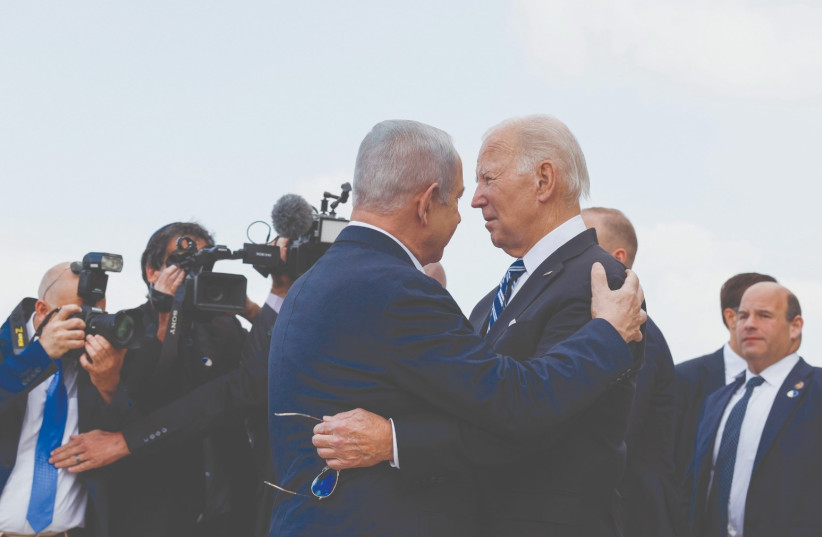Prime Minister Benjamin Netanyahu rejected all plans for unilateral recognition of Palestinian statehood after he spoke with US President Joe Biden for 40 minutes and after the security cabinet met.
“At the cabinet meeting, I clarified my position regarding the recent talk of imposing a Palestinian state on Israel,” Netanyahu wrote in a post on X.
“These two sentences sum up my position,” he explained.
״Israel outright rejects international dictates regarding a permanent arrangements with the Palestinians. Such an arrangement will be reached only through direct negotiations between the parties, without preconditions,” Netanyahu wrote.

“Israel will continue to oppose the unilateral recognition of a Palestinian state. Such recognition in the wake of the October 7 massacre would give a huge reward to unprecedented terrorism and prevent any future peace settlement,” Netanyahu stressed.
He spoke in the early hours of Friday after The Washington Post published an article the previous day about US plans with Arab allies to advance a two-state resolution to the conflict as part of a larger regional arrangement that would involve a Gaza ceasefire and Saudi normalization with Israel.
A number of European countries have also weighed unilateral Palestinian statehood recognition in light of the Israel-Hamas war.
Netanyahu has rejected full Palestinian statehood in favor of an autonomous Palestinian government in territory outside sovereign Israel but under IDF security control.
Finance Minister Bezalel Smotrich who is opposed to a Palestinian state had called on the security cabinet, which met Thursday night, to publicly reject any such plan.
Tensions regarding war in Gaza
Netanyahu’s comments come amid growing tension between him and Biden over critical issues regarding the Gaza war and the hostages.
CIA Director William Burns was in Israel on Thursday to discuss the stalled hostage talks with Netanyahu, a top that was also raised during the Prime Minister’s call with Biden.
Hamas has insisted that any deal must include a permanent ceasefire and the complete withdrawal of IDF forces from Gaza, two dictates Israel has rejected. But the US holds that there are still other areas of flexibility, such as with regards to demands on the release of Palestinian terrorists, where Israel could show flexibility.
Biden “reaffirmed his commitment to working tirelessly to support the release of all hostages as soon as possible, recognizing their appalling situation after 132 days in Hamas captivity,” the White House said after the call.”
The US has also asked Israel to take steps to ensure that increased humanitarian aid reaches Gaza and that the IDF presents a plan to protect Palestinian civilians during its planned military campaign into Rafah.
“The President and the Prime Minister also discussed the situation in Gaza and the urgency of ensuring that humanitarian assistance can get to Palestinian civilians in desperate need,” the White House said.
“The President also raised the situation in Rafah, and reiterated his view that a military operation should not proceed without a credible and executable plan for ensuring the safety of and support for the civilians in Rajah,” it added.
